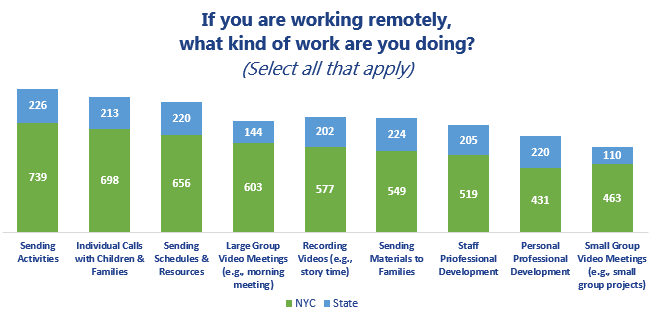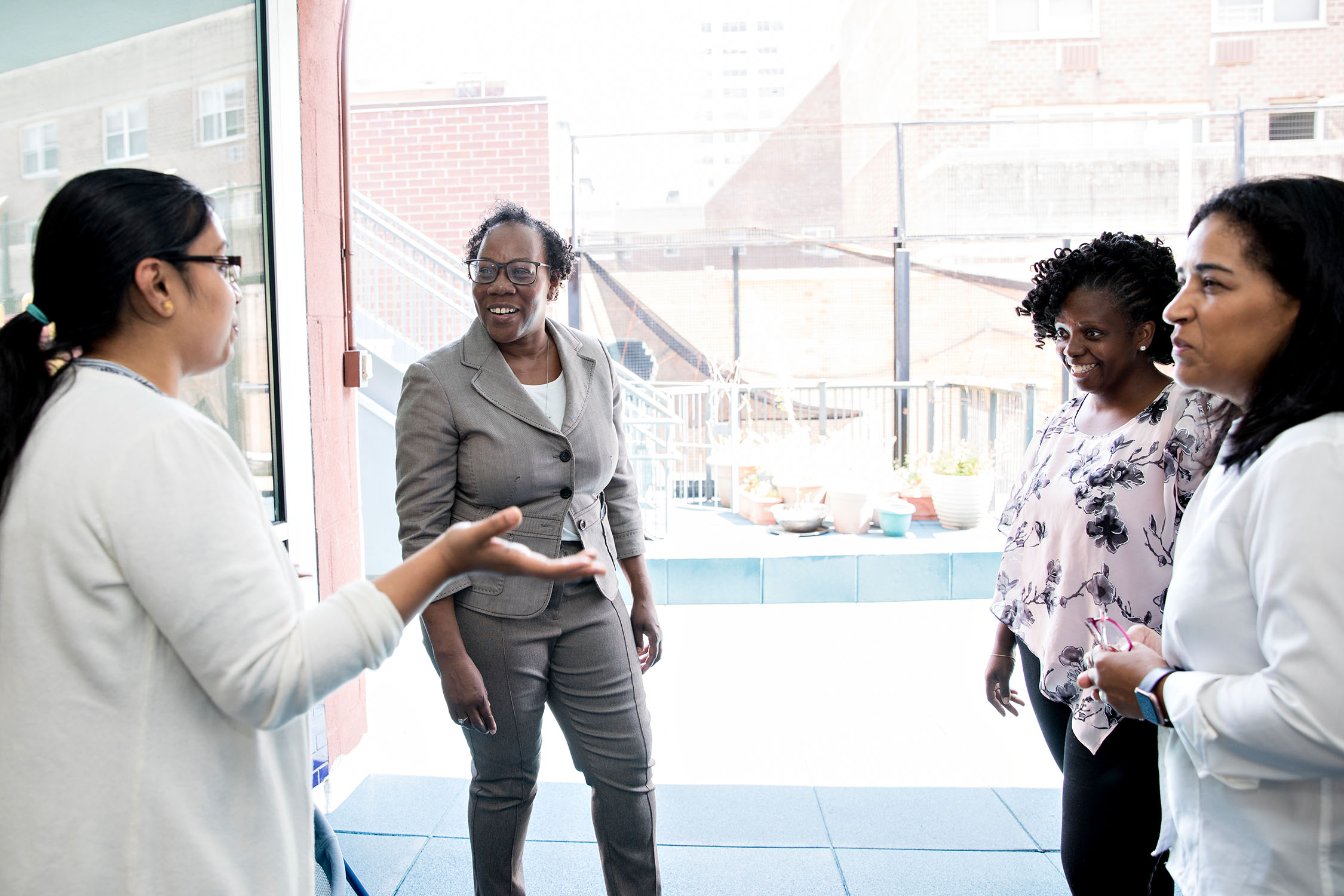From KaboomPlay and The Gesell Institute of Human Development comes a new video about the importance of play for children, and the ever-increasing push for more academics in Kindergarten: “The Role of Play in the Overly-Academic Classroom”
The Gesell Institute of Human Development is an independent non-profit organization located on the Yale campus.


This video puts in to light all of the issues we are dealing with in our education system today. I am so strongly against the academic push in the early childhood years, that I am writing my graduate thesis on this topic. It is equally as important for parents as well as educators to watch this video and become knowledgeable on early childhood development. I am a Kindergarten teacher and it concerns me that parents want to see worksheets and teacher directed activities going home. Many people feel that this type of academically rigorous teaching will push their children to become successful in school, when in actuality it does the exact opposite.
This is a great video that reminds us how important play is and how much it is being forgotten about. Children learn through play and natural environment teaching. If schools start placing such a strong emphasis on formally testing kindergarten children, they will start losing the motivation and excitement for school. This may even lead to school becoming an aversive stimuli. At that age, it should be fun and educational combined!
Watching this video was great because it really showed how learning through play is a great method for children to learn and grow. Our society is mainly focus on academic that many tend to lose sight on what is best for the children. We do not need to presuure children in kindergarten to read at a first grade level but teach our children how to grow socially and emotionally. Learning through play helps children develop their own way of thinking. Creating so much pressure on young children does not help them get to the next level but only brings them a step back. Play base models need to be brought back to the classroom in order to see results!
This is such an important topic in the field of education, especially now that play is being almost completely removed from the classroom. It is frustrating to know that the city and state still believe that testing is a more effective assessment of student learning than play. Play provides opportunities for the child to grow in various developmental areas whereas academics alone stimulate cognitive development. I am glad that the video mentioned the research concerning early readers and the fact that they are not better than late readers. Parents and educators should not feel like they have to force children to read so soon. The video encourages educators to teach children to be active learners. In the public schools teachers are required to teach to the standards and use most of the school day in teaching academics. I believe teachers can still teach active learning through the way we construct our lessons and by the questions we ask our students. Developing questions that will encourage students to think on a deeper level and providing time for free exploration will help to promote inquiry and discovery in their learning. This is something I am personally working on as an educator.
As both a parent and an educator, I am strong advocate of young children learning through play. I have seen the benefits of play in the classroom first-hand with my own daughter and with the 3-4 year olds whom I teach. It is troubling to learn that although research clearly supports the need for young children to learn actively through play, more and more schools are eliminating play and, in some cases recess, from the lives of Kindergarteners. Why? If study after study clearly shows the benefits of play in the lives of young learners how do we account for the trend towards curtailing and/or eliminating play from schools? Who is making the decision to cut play in favor of earlier testing? More importantly, why are we letting them make this change?
I teach three and four year olds at a preschool in NYC. The children are in school for three hours, five days a week. Everyday, they have approximately half an hour of outdoor play, weather permitting. In inclement weather they play in an indoor gym. In addition, they have approximately 45 minutes of Free Choice/Play. We focus on the social and emotional development of our students. We believe in the importance of learning by constructing knowledge through hands-on experiences. Further, we recognize that while children can certainly memorize information, the fact that they do so does not mean they have actually learned and processed it.
I think the real issue regarding the importance of play in the classroom is one of advocacy. As teachers, we are on the front lines. We know what is happening. We need to speak up. First, we need to ensure that parents are fully informed of the facts and the research regarding the importance of play in their children’s school lives. Also, we need to show them how it is being whittled away from their children’s daily schedule. Second, we need to join forces with parents and vigorously advocate for keeping play in the classrooms of young children. It is incumbent upon educators to speak out on behalf of their students. We know that cutting play from the schedule is not in young children’s best interests. Accordingly, we cannot stand by and just let this happen just because some policy makers are convinced they know what is best, when clearly they do not.
The young children of today are the future leaders of tomorrow. We owe it to the children and to ourselves to provide them with a developmentally appropriate education. Our goal should be to create life-long learners. One way to do this is to start the children out on the right foot. The clarion call should be, “Let young children learn through play!”
The video was very informative. It outlined the importance of play at the Kindergarten level. As the video clearly stated that young children learned better by been an active participants in the lessons been taught to them. Kindergarten classroom now is about drilling information into children brain so that they are prepared for testing because educators feel that the sooner they begin to drill information into children brains the more prepared they will be for testing. Classroom teachers are now presenting information to children without allowing children to explore information they are presented with can be applied to the real worl
Play will not only developed children social, emotional and physical wellbeing, it will also help to enhance their cognitive skill. Play help children to come up with problem solving strategies, cooperation among each other, leadership role and great thinker.
Teachers should make it apart of their responsiblity as educator to advocate that play become and continue to be apart of the kindergarten classroom.
I really enjoyed watching the video about the importance of play. More and more kindergarten programs are forgetting the benefits of play due to the increasing push of academics within our early childhood classrooms. Teachers, administrators and even parents are pushing for these programs to start early academic instruction to get a jump-start on future testing. However sooner is not necessarily better and we have to wonder what this is doing to our students.
Children do not learn through route memorizations, worksheets and drill sequences. These types of classroom environments create passive learners rather than active participants. Students in kindergarten need to be actively engaged with learning opportunities and have an opportunity to construct their own knowledge in a real world environment. This type of learning environment is referred to as play. A play-based classroom provides integrated experiences for the students and allows them to use all their senses rather than just one. A quality kindergarten program is one that focuses on the development of the whole child.
The benefits of learning through play are endless. Children acquire problem-solving skills, foster creativity, engage in new discoveries, express oral language and develop long term knowledge. These types of learners are also more motivated in the classroom and persistence in their future endeavors of learning. Our role as educators is to keep this fundamental truth in mind when we teach and work in our schools and programs. If we are not going to be the one to speak up for our students than who will.
I could not agree more with this video! Unfortunately, kindergarten classrooms are becoming more and more teacher-directed with less time for play and socialization. Administrators and teachers alike need to watch this video to be reminded how young children truly learn. Research shows that children learn through manipulating the world around them, exploration and play! We need to focus less on “teaching to the test” and more on the process of learning.
This was such a great video! It is an ever present concern in many of our classrooms about teaching to tests and standards and therefore limiting the opportunity for play in our classrooms. Sooner is not necessarily better and the drill type of teaching is not providing our students with experiences to think and develop problem solving skills. Fostering play and creative thinking enables students to develop long term knowledge and not just robotic responses. Many studies have been conducted saying that students who engage in learning through play are under less stress and therefore are more motivated in schools. There needs to be more of stance by educators to stop this growing desire to teach to tests so early.